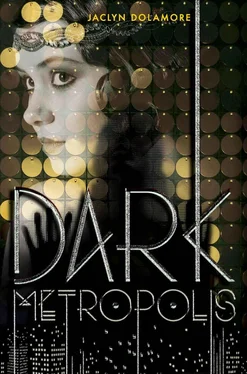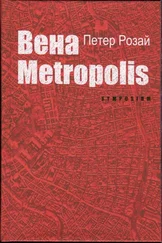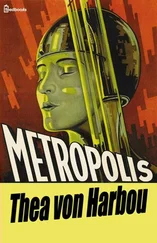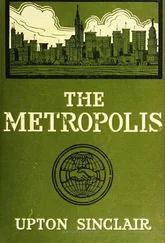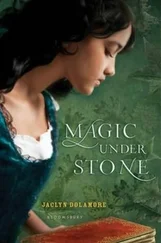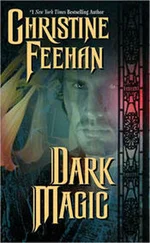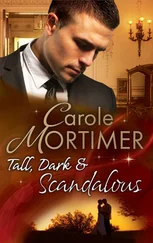She had to smile at this rather backhanded admission that it actually was his first date. Not that it was a real date. Because that would have made it her first date, too.
No, they had important business to discuss, even if Freddy didn’t know it.
“Do you have a place you like to go for coffee or something?” Freddy asked.
“Oh, I usually go to Café Tops because it’s just around the corner. But it’s—I don’t know. Sort of a sad-old-man place, really. The prices are good; that’s why I go.”
“Gerik has a car, so we could go farther if you’d like.”
She didn’t trust them enough for that, but she didn’t want to say so. “We could walk somewhere. I like a walk in the moonlight.”
He looked up at the sky. The moon was nearly full. They couldn’t see any of the stars with all the neon signs. “Sounds nice.”
They started to stroll. Gerik stayed well back, so she could almost forget he existed.
“Have you worked at the club long?” Freddy asked, making small talk.
“About a year.”
“Do you like it?”
“I do. Never a dull moment.”
“In a good way, I hope. I heard someone mention that one of the waitresses went missing the other night.”
The reference to Nan jolted her. Who had been talking about Nan? Everyone else seemed to brush off her disappearance. “Oh—well, yes, she hasn’t come in for a few days. It happens. She probably got a new job.” Thea didn’t really want to talk about Nan. He didn’t need to know how worried she was.
“You didn’t know her, then.”
“Does it matter?” Why all these questions?
“Not if it doesn’t matter to you. I just wondered if you were worried, since it sounded like she vanished unexpectedly.”
“I don’t talk to the other girls very much,” she said, but her voice was strained.
“A loner, are you? I am, too. It’s difficult to talk to society girls. They’ve never worked a day in their lives, and they don’t intend to, either. What do I talk to them about when they don’t do anything?”
“What are you planning to do?”
“That’s a sticking point,” he said. “My father was a clockmaker. I’d like to follow in his footsteps, to honor him. But Gerik shudders at the suggestion that I’d go into a trade.”
“But making clocks takes skill,” she said, and then realized how silly that was to say. Of course a man from the upper tiers of society wouldn’t care whether Freddy had the skills of a craftsman. “I think it’s very respectable, anyway.”
“I knew you would,” he said. “That’s why I’m buying you coffee.”
They were turning away from the entertainment district, toward Frederstrasse, which lacked the wild abandon and abundance of neon lights but nevertheless had a reputation as a hangout for bohemians, with bookshops and small presses for poets by day, coffeehouses and bars by night. The street was lined with trees, men in artistically scruffy clothes spilled out of the bars, and somewhere in the distance she heard an accordion.
“Wonder where that’s coming from,” Freddy said, perking to the sound.
“It’s an old song from Irminau,” Thea said. “Did your mother ever sing it to you? Mine did. ‘Little Cuckoo.’”
“Both my parents died when I was little,” Freddy said, lightly enough, but she could tell it made him sad. She wished she hadn’t asked him.
The accordion grew louder as Freddy led her right to it, through the door of a coffeehouse called the Hornbeam. She thought Gerik might protest the choice of a rustic coffeehouse, but he went right along. The musician’s eyes were closed, as if he didn’t care whether anyone was watching him. He was missing most of his teeth and needed a shave, but he played beautifully. Freddy led her to a table, dragging out a wooden chair for her. Nearly everything in the room was made of wood, and people drank their coffee by candlelight. Such a contrast from the sleek glitter of her usual environment, it reminded her of the country cottages of childhood summers.
Gerik took another table nearby and unfolded an evening paper from his coat.
They ordered cups of coffee, and Thea stirred cream and sugar into hers.
Gerik still wasn’t paying any attention to them.
She gave Freddy’s hand a light touch. “Thanks for taking me out. This is nice.” She had planned the words, so they came out smoothly, but she barely heard herself say them. The vision returned. Weaker this time, but still more potent than anything in her imagination. Her father, eyes opening, drying blood on his uniform.
Freddy’s reaction was restrained but obvious. He jerked his hand back. His brows furrowed, and he looked at the spoon and napkin set on the table.
She stared at him for a moment until he had to acknowledge her eyes, and then she finally looked away. “You see it, too,” she said softly.
“I don’t understand,” he said.
“It was my father. Why do I see my father when I touch you?”
“I don’t know,” he said, his voice quiet. “Are you sure it was your father?”
“I should think I recognize my own father. Do you—did you know him?”
“What was your father’s name?” He was leaning closer. She got the sense he didn’t want Gerik to hear them.
“Henry Holder.”
“I don’t know the name.” He looked genuinely confused, but she felt he was holding something back. “Has he been missing?”
“He went missing in action eight years ago, during the war. They told us he was certainly dead, that a lot of men had to be buried unidentified in a mass grave. But my mother has always insisted he’s alive.”
“Maybe he is, then,” Freddy said.
If she let herself, even for a moment, imagine her father walking in the door, imagine his laugh and the way his evening mug of beer used to smell and the piles of books he’d leave near his favorite chair and the way Mother kissed him when he came home from work…imagine all of that being real again…
“It’s been so long,” she said. “He would have come home by now. He’d have to.”
“He could’ve been badly injured. Lost his memory,” Freddy said, seeming to think along the same lines she once had. “It happens in books so often that it must happen in real life once in a while.”
“Even if he lost his memory…” She drew back, letting her eyes drift to the accordion player again. “My parents were bound.”
“Bound?” He cocked his head. “I thought that was outlawed.”
“It is nowadays, but they were bound before that.”
“Was it an arranged marriage?”
“No. They wished to be bound when they married, so they would always be connected.”
Freddy looked interested. “I don’t think that was done in my parents’ village. I’ve only read about it.”
“After my father supposedly died, my mother started losing her mind. When I touch her, the magic that binds them touches me, too. I have a bit of a connection to them both because of the spell, but it’s not strong like Mother’s. I just feel how disturbed she is, and I’m helpless to do anything about it.”
Freddy’s expression was dark in the dim light. Maybe she’d said too much. She didn’t want him to pity her. She was supposed to be finding out why she saw her father when she touched Freddy, not confessing her own family history. Only, he wasn’t giving her much to work with. She recalled Nan’s comment that the revolutionary papers said Gerik was involved in terrible things. Was it possible he had anything to do with her father’s death?
“Gerik’s in the government,” she said, switching angles. “What does he do, anyway?”
Freddy didn’t seem to expect that question. “He’s a domestic adviser or something. I’m not sure what he does, not exactly.”
Читать дальше
